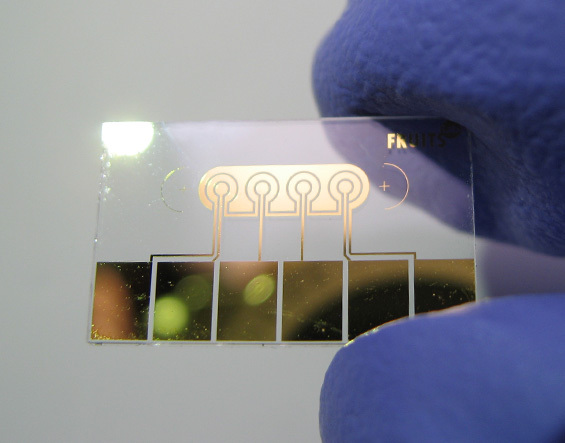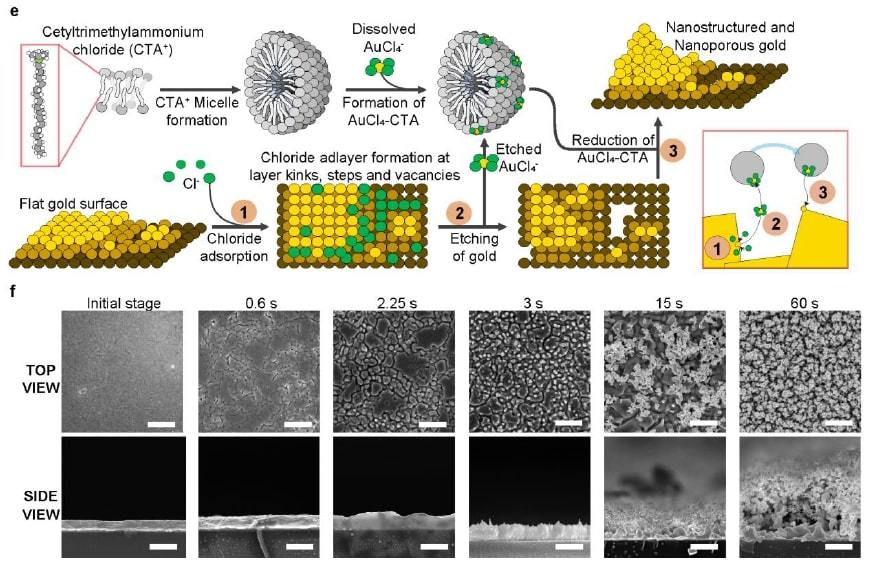 |
Biosensor capable of detecting cancer with a drop of blood (Institute for Basic Science) |
Researchers at the Institute for Basic Science have developed a biosensor that can detect cancer with a drop of blood, the IBS said Wednesday.
A group of researchers led by Cho Yoon-kyoung developed nanoporous gold electrodes to construct a biosensor with high sensitivity and accuracy, according to the IBS.
The researchers named the development process SEEDING, which stands for surfactant-based electrochemical etch-deposit interplay for nanostructure and nanopore growth.
The study confirmed that the biosensor verified patients with prostate cancer by quickly detecting certain type of protein attached to cancer-causing exosome from analyzing biological samples -- urine and blood -- at the site of testing.
The IBS said the existing diagnosis method of biological samples takes longer and costs more. Analyzing samples requires separation and dilution of biomarkers, which is usually carried out at large medical institutions or labs.
The IBS added that the new biosensor technology is expected to be widely used in the field of on-site diagnosis for detecting other types of cancer as well as infectious diseases.
“This technology will provide a key foothold in the development of future technologies for on-site diagnostic devices,” said Cho.
“We plan to expand our research to develop diagnostic chips that analyze blood and saliva samples by utilizing the potential of porous gold nanostructures,” she added.
 |
Illustration of how porous gold nanostructure is made (Institute for Basic Science) |






![[Herald Interview] 'Trump will use tariffs as first line of defense for American manufacturing'](http://res.heraldm.com/phpwas/restmb_idxmake.php?idx=644&simg=/content/image/2024/11/26/20241126050017_0.jpg)


![[Herald Review] 'Gangnam B-Side' combines social realism with masterful suspense, performance](http://res.heraldm.com/phpwas/restmb_idxmake.php?idx=644&simg=/content/image/2024/11/25/20241125050072_0.jpg)